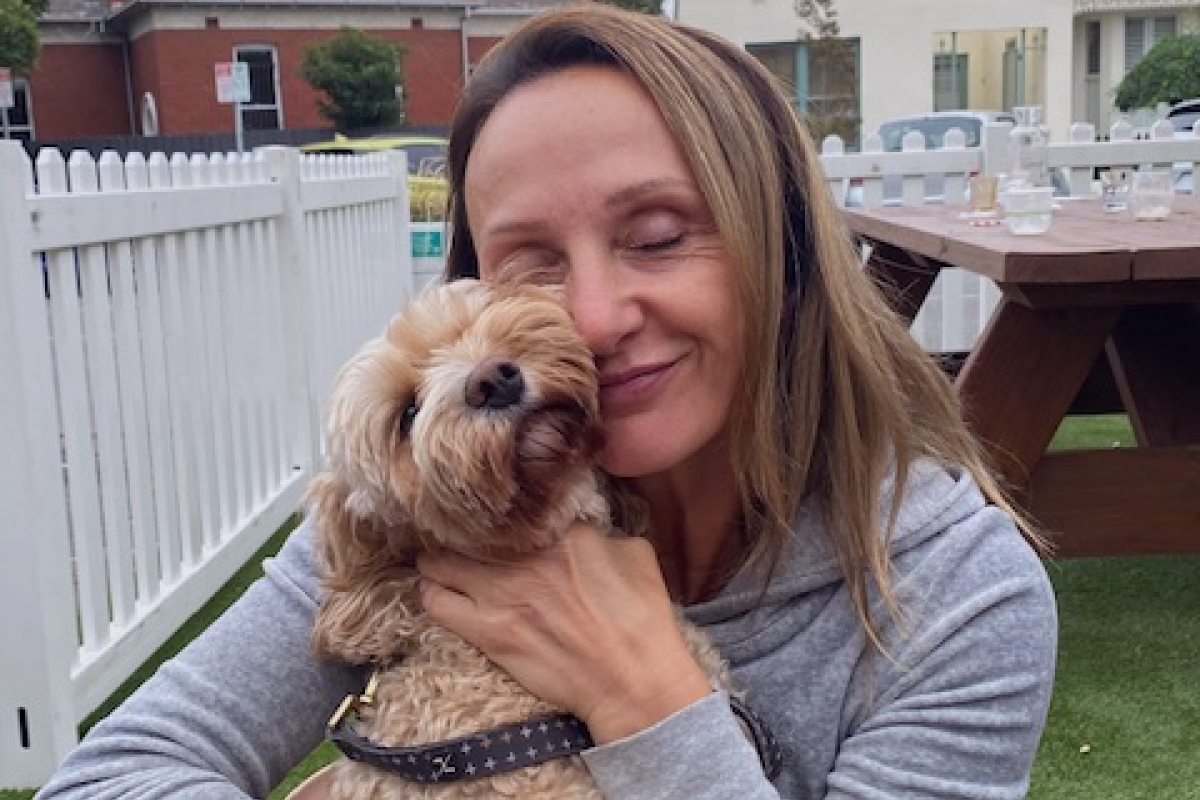Menopause is a near-universal experience for women. Some embrace it, while others find it challenging — either way, it tends to be under-discussed. This can leave women feeling unconfident, alone, and reluctant to reach out for support.
Magdalena Dingas wants you to know that despite the challenges, there’s an upside to menopause. She shares the story of her transition in the hope that others feel less alone in their journey.
Can you tell us a little about your career to date?
I’ve worked in the advertising industry for most of my career. I was quite versatile in my roles over the years, working as an executive assistant, office manager, part-time front-of-house operations, and assistant accountant.
You are currently in the perimenopause phase, defined as the time your body makes the transition to menopause. How and when did your menopausal transition begin?
My menopausal transition began in my mid-40s, starting with sensitivity to sound and the onset of hayfever. I had never experienced either of these previously and, at the time, wondered what was causing them. I also experienced extreme tiredness, on and off moody days, and the occasional angry days. My periods were irregular too.
Can you tell us how you knew it was perimenopause, and what phase you’re in now?
I knew I was in the early stages of perimenopause when I began experiencing severe lower back pain, followed by extreme period flow (I‘m talking hemorrhaging for seven days straight!). This happened for about five months, and with each onset, I experienced anxiety and fear that the situation would get out of control, particularly because I was working.
This stage naturally passed and thank goodness I’m done with it — I wouldn’t wish it on anyone.
I’m still in the perimenopause phase and will be in the menopause phase once I haven’t had a period for 12 months straight. I’m almost there, although it’s been a few years now. Currently, my hormones are all over the place, my sleep is disrupted (I wake two to three times per night), I have hot sweats, painful joints, low libido and I’m irritable. My energy levels vary and I take power naps when I need them to get through the day. My focus is limited and my patience is short. I also occasionally get hot flashes (I’ve put limits on some liquid consumption, as hot flashes are stimulated by alcohol and caffeine).
What services and support do you lean on?
Initially, I went and saw my doctor and had a blood test that showed no irregularities.
I found support in talking about my experience with friends and colleagues, and sharing advice and recommendations. My beautiful friend suggested I try Happy Hormones (a combination of natural herbs and superfoods designed to support a healthy hormonal balance) as she had tried them and noticed a difference in how she felt.
I’m currently taking them and couldn’t be happier. It’s definitely helped me. I can sleep and I am calm, pain-free, and energetic again. I have recommended them to many women.

What advice do you have for others seeking support?
Talk openly to your friends and support each other. Give natural therapies a try, and don’t be afraid to seek medical assistance if you need it.
For some women, menopause can be a positive time of change in their lives. How has menopause impacted your identity?
For me, it was and still is a big distraction as this whole process can take up to 10 years to transition through.
On a positive note, I am over the worst part: I no longer have my period and I can have unprotected sex (when my libido returns!) as I don’t have to worry about falling pregnant, and I’m taking the Happy Hormones to help balance out my hormones — this all helps me get on with my day-to-day.
Managing the impacts of menopause on top of your day-to-day family and work requirements must be challenging at times. What advice do you have for other women in a similar situation?
My advice is to get help if you need it and not to be afraid or ashamed to speak openly about what you’re going through because this is how we learn about menopause. It might just help someone feel less alone in their experience.
I waited and persisted for months until I realized I had to accept that the feelings and experiences I was at war with would be with me for a few years to come. So, be kind to yourself and reach out for help if you need it.
What is your way of coping with the emotional and physical side-effects of perimenopause? What do you do when you find yourself frustrated or overwhelmed?
The best way I cope with the emotional and physical side effects of menopause is to keep fit and healthy. Exercise and a healthy diet help me manage weight gain, and the endorphins keep me happy and energetic. When I feel frustrated or overwhelmed, I often go for a walk or a run with a friend to burn off the negative energy.
What are some of the unique challenges you’ve faced at work as a result of the menopausal transition? How have you overcome these?
Unless you’re open about your experience, you go through menopause without anyone knowing what is happening to you. It can be difficult to talk about, especially at work, although I informed a colleague who supported me when I needed it.
For me, anxiety set in. I was emotional and feared embarrassment (if I did not manage the situation well). The challenges eventually subsided, but at the time it was traumatic.
What type of support would you have benefited from your employer?
An employee health policy to support women going through menopause, offering time off to de-stress.
Have you ever felt you had to work through challenging symptoms or fabricate another health condition because your menopause was not taken seriously?
Yes. I used the excuse that I had a migraine.
How can employers remove the stigma around menopause?
Educate yourself to understand what women go through and introduce care policies to support women during this time.
What do you wish you could tell others about menopause, but don’t usually get the chance?
The symptoms build up slowly over time. Get help if you need it — don’t hold back.
The best career advice I’ve ever received… was “do what you love”.
I’m happiest when… I’m relaxing with my family at the beach
I’m inspired by… motivated people who put words into action.







